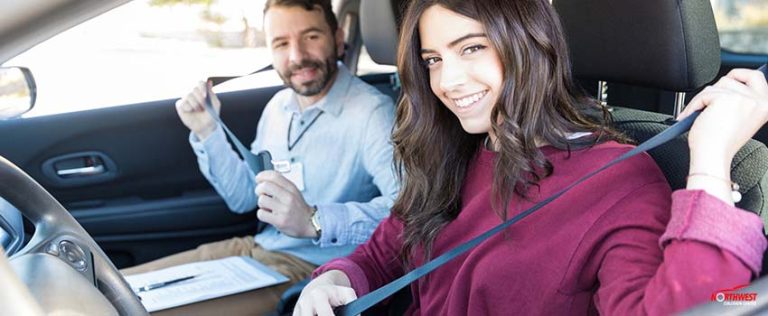It is estimated that approximately 92 million Americans will travel interstate by road this coming Labor Day weekend. With this many people traveling by car, accidents are bound to happen, and it is estimated that there will be more than 466 fatalities on American roads this Labor Day weekend. This article details some Labor Day driving safety tips that will help you significantly reduce the chances of a car accident this coming Labor Day weekend.
Read here for some driving safety tips, which, when put into practice, will significantly reduce the chances of you being involved in a car accident and help you have a safe and happy Labor Day weekend.
Labor Day Driving Statistics
Before detailing the driving safety tips, let’s first look at some labor day driving statistics that emphasize exactly why these safety tips are needed. A recent survey conducted by “The Vacationer,” entitled “Labor Day 2022 Travel Survey,” estimates that 137 million adults will be driving to their holiday destination during the Labor Day holiday.
The Vacationer survey further estimates that 466 individuals will possibly die on the roads in America this Labor Day weekend, and over 53,100 injuries will incur because of car accidents.
The study also showed that wearing a seat belt prevents 45% of fatalities in car accidents among front seat passengers, and approximately 38% of car accident fatalities will involve the consumption of alcohol.
Driving Safety Tips
With the number of people driving on the roads during the Labor Day long weekend, it’s an undeniable fact that accidents are going to happen. However, you can lessen the chances of yourself being involved in a car accident by following these Labor Day driving safety tips:
Drive slowly.
One of the most common driving safety tips is to slow down when driving. Decreasing driving speed gives you a longer reaction time, which helps avoid accidents. Reducing driving speed has also decreased stress levels and the force of impact if an accident occurs.
In addition, slowing down while driving decreases your gas consumption and eliminates the worry of speeding tickets. Both of these advantages save you time and money.
Exercise patience and caution.
Exercise patience and caution when driving on the road this coming Labor Day weekend. There are a lot of benefits to be gained from exercising patience and caution when driving, not the least of which is that this not only decreases the chances of an accident occurring but also helps reduce stress levels.
One simple means of exercising patience is to take your time getting to your destination, don’t be in a hurry. Remember it’s better to arrive at your destination late than never at all. Other drivers may not exercise preventive measures, but this is all the more reason for you to do so. For example, if you are being tailgated while driving, pull over and let the other driver pass on by.
Always wear seat belts.
One of the most crucial summer driving safety tips is always to buckle up. Ideally, any driver should wear a seat belt, as should all passengers in a moving car. Wearing a seat belt will keep you from being ejected from the car and can significantly lessen the impact. For example, if you are involved in a car crash and are not wearing a seat belt, you may be thrown against a hard surface and sustain significant injury.
Wearing a seat belt will reduce the force of impact and many times stop impact altogether. Most (if not all) countries include wearing a seat belt in their laws because, as is clearly shown by statistical evidence, wearing seat belts saves lives. The governing body responsible for road safety in America is the US National Highway Traffic Safety Administration. In the most recently published report, this organization has stated that wearing a seat belt reduces the chances of severe and fatal injuries by approximately 45%.
Seat belts or some form of restraint should be worn by all the passengers inside a moving car as this will significantly reduce the chances of severe or fatal injury. For young children, you can use a specially designed safety seat with seat belt straps built in, and for other children, you can use the car’s standard seat belts but ensure they are properly secured and fitted.
Wearing a seat belt has been verified as a life-saving practice for everyone inside a moving vehicle, making it one of the most important Labor Day driving tips to remember and apply.
Avoid texting or calling while driving.
Among the many driving safety tips, another important one to remember is not to use your cell phone while driving. We use our cell phones for texting and calling, which have become an integral part of our lives. Given how dependent we have become on our cell phones, it is actually quite difficult not to use them for any length of time. However, it is critically important to learn to do without our phones when engaging in activities like driving.
Using your cell phone while driving diverts your attention away from the road, slows your reaction time, and increases the likelihood of an accident by four times. Of all the summer driving safety tips, this is one of the hardest for us to put into practice simply because we are so used to using our cell phones and psychologically dependent on them.
Don’t drink and drive.
One of the most valuable and essential driving safety tips you will ever receive is don’t drink and drive. It is estimated that approximately 30 percent of fatal car crashes in America involve alcohol. Between 2011 and 2021, there were approximately 10,500 fatalities each year due to drunk driving accidents.
The Labor Day long weekend is traditionally a time for celebration and drinking alcohol; however, if you consume over the legal driving limit, it is strongly recommended you either get a lift home or take public transport.
Conclusion
People can follow many safety tips to avoid car accidents this coming Labor Day weekend. These tips mainly involve exercising common sense and are easy to follow. Arguably, the most important of these tips are: to drive slowly, exercise patience and caution, wear a seat belt when driving or being a passenger, avoid using your cell phone while driving, and don’t drink and drive. Following these tips will significantly reduce the chances of you having a car accident when driving, and you’ll have a safe and happy labor day weekend.
What to do if involved in a car accident this Labor Day weekend?
Remembering these Labor Day driving safety tips will help avoid accidents and other life-threatening situations. However, even if you follow all the safety tips outlined in this article, you may still be involved in a car accident because you cannot control the actions of other drivers. If this is the case, getting your car repaired as quickly and professionally as possible is important.
This is where companies like Northwest Collision Center, a reliable auto body shop in St. Petersburg, FL, come into the picture. Professional auto body repair shops will repair your car’s damaged body quickly and effectively, bringing it back to as good as new. Furthermore, they will do it at a very competitive price.










